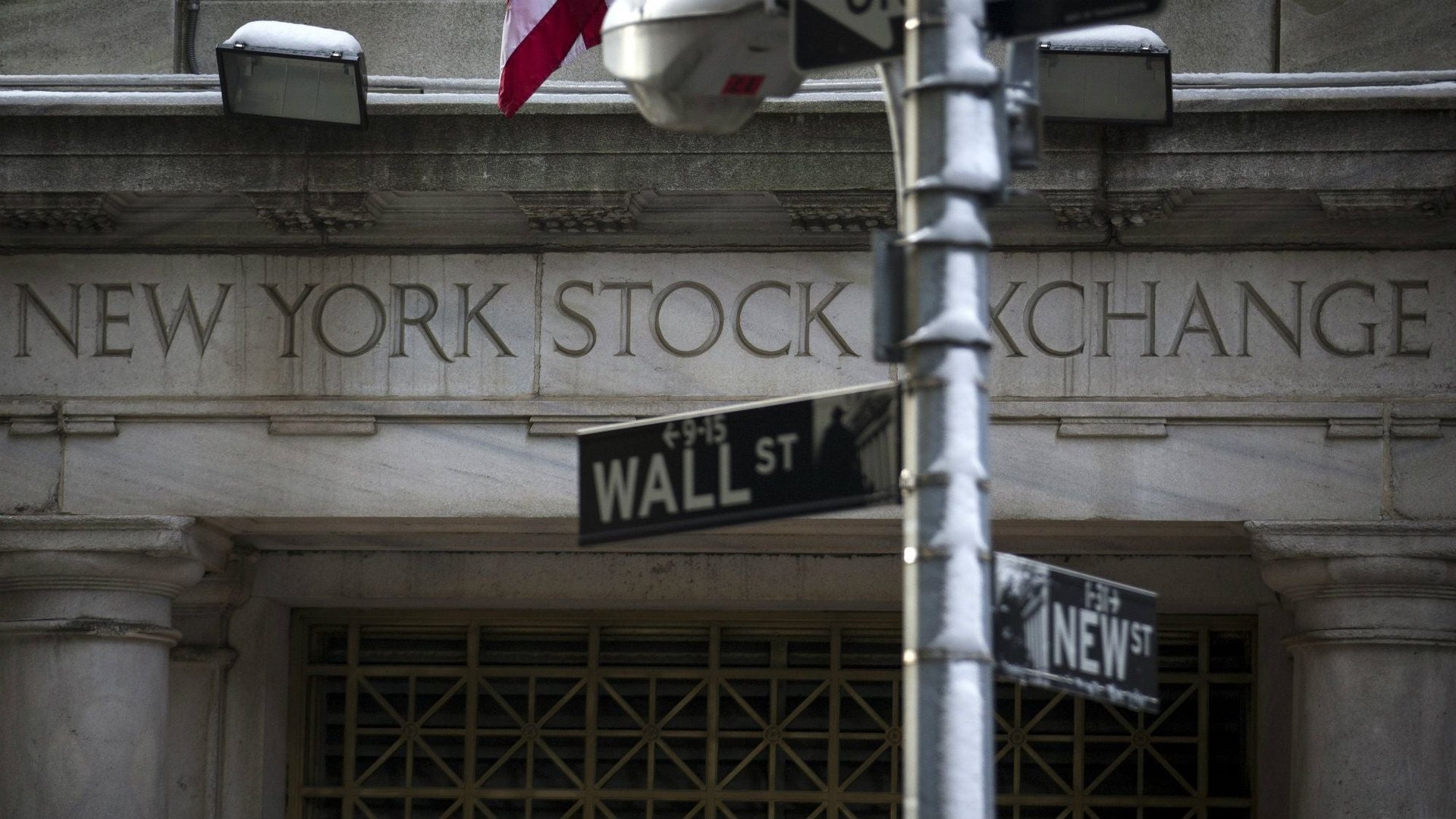2018 was the worst year for the markets in over a decade
Investors agree: 2018 was a bad year for markets.


Investors agree: 2018 was a bad year for markets.
How bad is bad? A little bad? Very bad? Cataclysmically bad? The precise measure depends a little on where you’re asking about—and which markets.
By at least one metric, it was the worst year of all time. Commodities such as oil and gold suffered another dismal year, while all over the world, markets struggled.
In China, the Shanghai composite index fell 25%, compounded by the ongoing trade war with the US. For European banks and US financial stocks, closing the year in a bear market, there was little by way of silver lining. The forecast for US stocks overall looks barely more promising—short of a last-minute miracle, Wall Street will this year suffer its worst December since the Great Depression.
Here’s a closer look at what sent markets hurtling down in 2018—and what’s in the offing for 2019:
Global growth is slowing
A slowdown among several big world economies is looking more and more like a certainty—and it’s turned markets upside down. As a November report from the International Monetary Fund notes, “Although still supportive of growth, global financial conditions have started to tighten.” Growth continues, but we’re now at a relative plateau, with higher US interest rates, a robust US dollar, and worryingly wild market swings putting pressure on emerging markets. In Turkey, for instance, the economic slump (paywall) sparked fears of a recession. Meanwhile, Chinese economic growth hit its lowest point in a decade, exacerbated by ongoing trade tensions and rising debt levels.
The strong dollar—and all its problems
A strong dollar might sound like good news for the US, but it wasn’t for everyone at home or away. Despite the US economy being in rude health (for now), the robust dollar proved problematic for US multinationals such as 3M, Caterpillar, Kimberly-Clark and Procter & Gamble, who do much of their business overseas. For them, and others, the healthy dollar ate away at the value of international sales and profits.
In a blog post for Morgan Stanley, Lisa Shalett warned about the risk a strong dollar poses to foreign markets’ potential for growth:
Countries that have borrowed in dollars see their total cost of debt service go up as the dollar strengthens against their own currencies. Liquidity can dry up and credit growth can slow, ultimately leading to slower economic growth.
Commodities are usually priced in dollars so foreign buyers effectively have to pay more when the dollar strengthens. That can result in less demand, leading to lower prices. The sale of commodities is a key revenue source for many emerging market countries.
Commodities are struggling
It’s been a decade of lows for commodities, with seven annual falls in the past 11 years. The Bloomberg Commodity Index, which measures 22 commodities including lean hogs, gold, soybeans and crude oil, suffered a 12% drop this year after two years of moderate growth. As Jake Lloyd-Smith reports for Bloomberg, “Among 2018’s biggest losers, West Texas Intermediate crude slumped more than 20 percent amid concern there’s too much supply, while in metals, economic bellwether copper shed 18 percent on the Comex.” It was similarly bad news for sugar and steel. Natural gas was one of few commodities to experience any uptick at all, while uranium, wheat and cocoa enjoyed robust growth.
Political turmoil equals market volatility
The Twitter-happy US president, the looming threat of a no-deal Brexit, and a radical Italian government at loggerheads with the European Commission. These alone would be enough for a year of choppy markets—add to the equation the US-China trade war and the rise of populism all over the world, and you have decidedly stormy seas. In the UK, for instance, the end of 2017 heralded an all-time high for the FTSE 100; now, it’s down 12.49%.
The new year will require careful political handling—though speaking to the Guardian, Berenberg’s Holger Schmieding was optimistic. Italy may avoid a “genuine Greek-style debt crisis” after finally passing its budget, while “Trump’s latest musings on progress in talks with China” may signal an end to the trade tariff. Whether careful negotiation will be enough to escape a no-deal Brexit for Britain is an open question.
Though this year may have had its challenges, not everyone is panicking (and especially not those who held on to cash and bonds amid market volatility). It’s the same old story as the dot-com bubble, Black Monday of 1987, even the Great Crash 0f 1929: what goes down eventually comes back up again. But how much more things fall—and how much damage they’ll cause on their way there—remains to be seen.